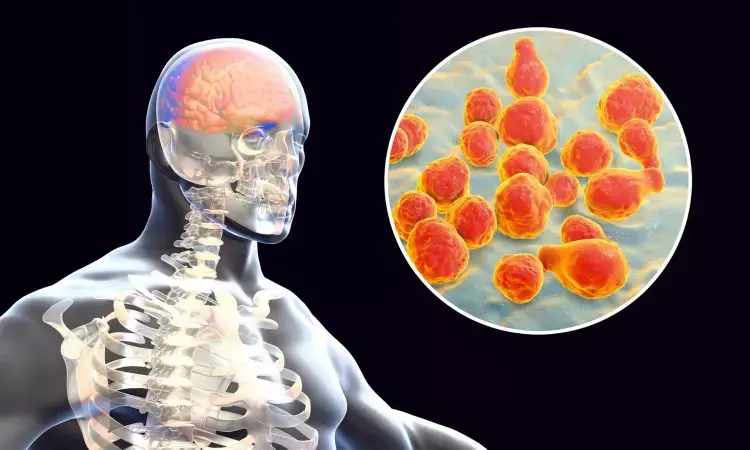- Home
- Medical news & Guidelines
- Anesthesiology
- Cardiology and CTVS
- Critical Care
- Dentistry
- Dermatology
- Diabetes and Endocrinology
- ENT
- Gastroenterology
- Medicine
- Nephrology
- Neurology
- Obstretics-Gynaecology
- Oncology
- Ophthalmology
- Orthopaedics
- Pediatrics-Neonatology
- Psychiatry
- Pulmonology
- Radiology
- Surgery
- Urology
- Laboratory Medicine
- Diet
- Nursing
- Paramedical
- Physiotherapy
- Health news
- Fact Check
- Bone Health Fact Check
- Brain Health Fact Check
- Cancer Related Fact Check
- Child Care Fact Check
- Dental and oral health fact check
- Diabetes and metabolic health fact check
- Diet and Nutrition Fact Check
- Eye and ENT Care Fact Check
- Fitness fact check
- Gut health fact check
- Heart health fact check
- Kidney health fact check
- Medical education fact check
- Men's health fact check
- Respiratory fact check
- Skin and hair care fact check
- Vaccine and Immunization fact check
- Women's health fact check
- AYUSH
- State News
- Andaman and Nicobar Islands
- Andhra Pradesh
- Arunachal Pradesh
- Assam
- Bihar
- Chandigarh
- Chattisgarh
- Dadra and Nagar Haveli
- Daman and Diu
- Delhi
- Goa
- Gujarat
- Haryana
- Himachal Pradesh
- Jammu & Kashmir
- Jharkhand
- Karnataka
- Kerala
- Ladakh
- Lakshadweep
- Madhya Pradesh
- Maharashtra
- Manipur
- Meghalaya
- Mizoram
- Nagaland
- Odisha
- Puducherry
- Punjab
- Rajasthan
- Sikkim
- Tamil Nadu
- Telangana
- Tripura
- Uttar Pradesh
- Uttrakhand
- West Bengal
- Medical Education
- Industry
Kerala reports 104 Amoebic meningoencephalitis cases, 23 deaths: Health Minister

Thiruvananthapuram: Kerala health minister Veena George on Sunday confirmed that 104 cases of amoebic encephalitis (brain fever) have been reported in the state so far, and 23 patients have died.
The state is currently battling this rare and often fatal brain infection caused by the "brain-eating amoeba" Naegleria fowleri.
Kollam and Thiruvananthapuram districts have been most affected according to estimates, while cases are also increasing in Kozhikode and Malappuram, according to officials.
"Following the Nipah outbreak in Kozhikode in 2023, it was decided and directed that all cases of encephalitis (brain fever) must be mandatorily reported and that the causes behind such cases should be identified. As a result, from 2024 onwards, encephalitis cases began to be officially reported, and some of them were found to be amoebic encephalitis, George said in a post on Facebook, reports ANI.
Also Read:Kerala doctors treat first case of dual brain infection
"Including the cases reported today, a total of 104 amoebic encephalitis cases have been reported so far, of which 23 patients have died," George said.
In 2024 itself, the Health Department issued both general and technical guidelines for the diagnosis and treatment of the disease.
The state health minister detailed that globally, the fatality rate for Naegleria fowleri infection is 98 per cent, and for Acanthamoeba-related cases, it is above 70 per cent. "Despite such high global mortality rates, Kerala has managed to significantly reduce the death rate by detecting and treating the disease at an early stage," she said.
In 2025, an action plan based on the One Health approach was prepared and implemented to prevent amoebic encephalitis.
"Based on the decisions taken at a joint meeting chaired by the Chief Minister Pinarayi Vijayan, various departments are working together to ensure scientific chlorination and other preventive measures are carried out continuously across the state," the minister said.
Also Read:Brain-eating amoeba claims 2 more lives, including infant in Kerala
Kajal Rajput joined Medical Dialogues as an Correspondent for the Latest Health News Section in 2019. She holds a Bachelor's degree in Arts from University of Delhi. She manly covers all the updates in health news, hospitals, doctors news, government policies and Health Ministry. She can be contacted at editorial@medicaldialogues.in Contact no. 011-43720751


